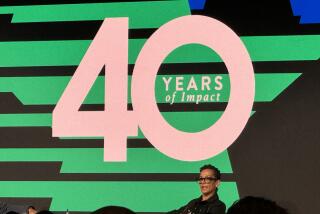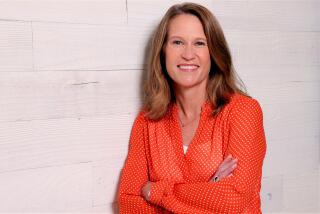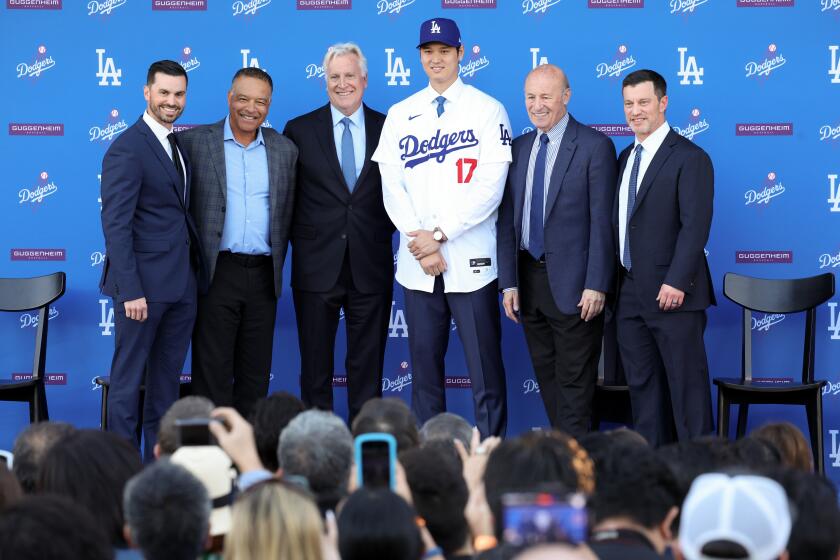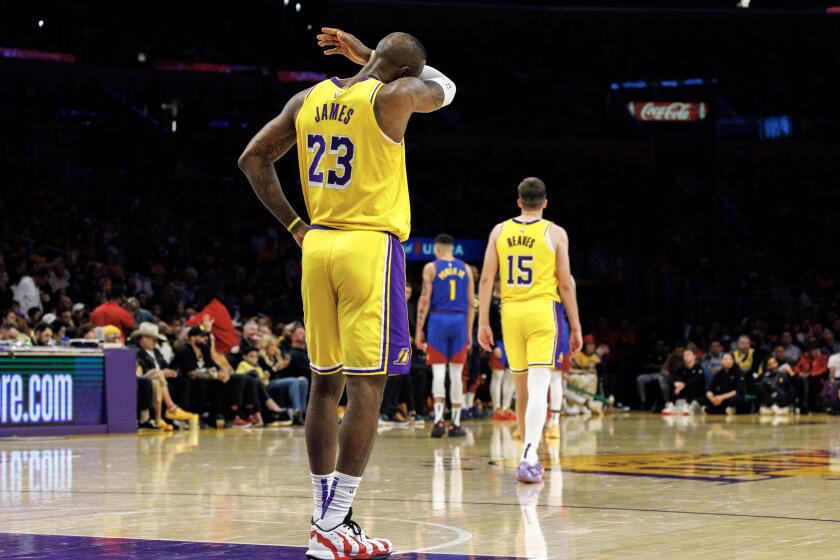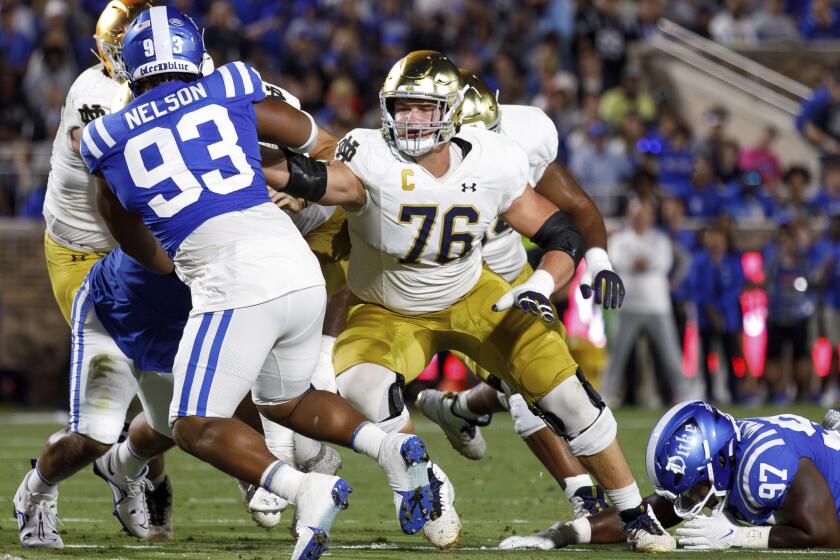Thirty years later, Rafer Johnson carries the Olympic torch again
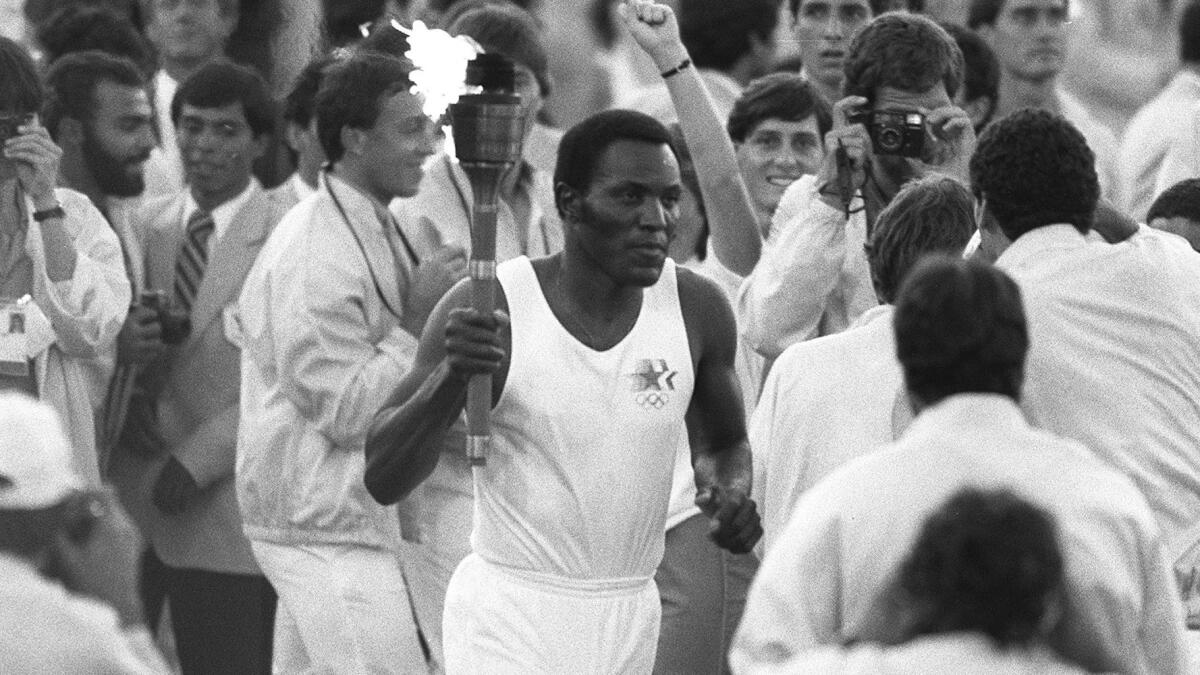
Past met present on Monday, when Rafer Johnson carried the Olympic torch into a party that celebrated the 30th anniversary of the opening ceremony of the 1984 Los Angeles Summer Olympics.
It was 30 years ago Monday that Johnson, the 1960 Olympic decathlon gold medalist, ignited the Olympic flame in the cauldron at the Coliseum to launch the privately financed Games. Fears of massive traffic jams and questions about the Games’ financial viability were quickly quashed. Freeways were easy to travel, fans flocked to events and TV audiences were huge, making the Olympics a success on several levels despite a boycott by the Soviet Union and some of its allies.
Johnson, striding confidently with his right arm high above his head as he carried the torch Monday, was among 50 Olympians who attended an anniversary event at the West Adams headquarters of the LA84 Foundation, which was established to promote youth sports by investing its share of the surplus produced by the Los Angeles Games. “Nowhere on Earth is there a living legacy of this magnitude,” said Edwin Moses, who took the athletes’ oath at the opening ceremony and went on to win his second Olympic gold medal in the 400-meter hurdles.
Gymnastics all-around gold medalist Mary Lou Retton, double-gold medal-winning diver Greg Louganis and cycling road racing gold medalist Connie Carpenter-Phinney were joined by teammates from 1984 and other U.S. Olympians. Among them was 1948 and 1952 diving gold medalist Sammy Lee, who will be 94 on Friday.
Lou Zamperini, a 1936 Olympic runner and former prisoner of war who died earlier this month in Los Angeles at 97, was remembered with a round of applause.
Peter Ueberroth, head of the L.A. Organizing Committee, remembered starting out with nine people and watching the staff grow, with the addition of volunteers, to 35,000. “These were people who cared about their community,” he said. He joked that when organizers offered him the job, “they decided they should have somebody who wasn’t very bright but was available to run the Games.”
Hardly so. The 1984 L.A. Olympics created great memories, a spirit of cooperation and a great financial legacy that will fund Olympic dreams for years to come.
Twitter: @helenenothelen
More to Read
Get our high school sports newsletter
Prep Rally is devoted to the SoCal high school sports experience, bringing you scores, stories and a behind-the-scenes look at what makes prep sports so popular.
You may occasionally receive promotional content from the Los Angeles Times.
